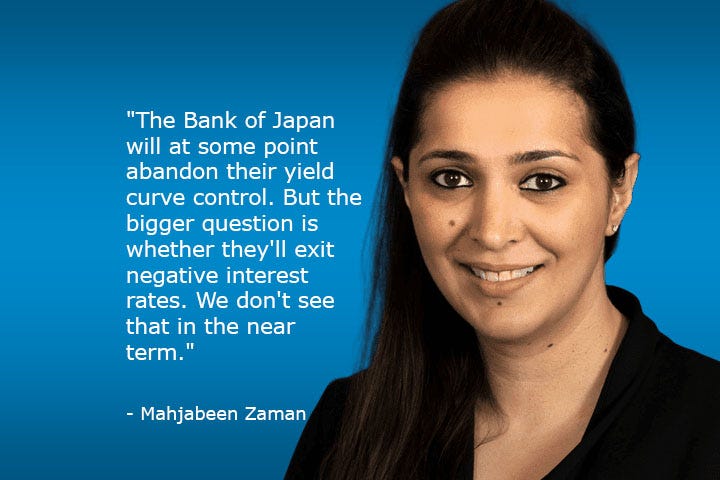Global stocks are starting the week down again thanks to high bond yields and plenty of nerves about geo-politics.
In our bonus deep-dive interview, ANZ NZ Economist Andre Castaing unpacks why New Zealand has a trade deficit of 3.5% of GDP.
5 things to know
The S&P 500 closed down 1.3% and the Nasdaq ended down 1.5% after the 10-year bond yield briefly touched 5.0% late on Thursday. The A$ is opening down at 63.20c. The NZ$ is weak at 58.26c. Brent is at US$92.81, down 1%.
The yen slid briefly to 150/$ on Friday, before bouncing on intervention fears. ANZ’s Head of FX Strategy Mahjabeen Zaman says Japanese authorities may tolerate the yen staying low if energy costs don’t spike as much as last year, when they did intervene.
The Bank of Japan intervened on Friday to buy 10-year Japanese Government Bonds (JGBs) after its yield spiked to 0.8450%, a 10-year high. Mahjabeen says the BoJ will abandon its yield curve control programme at some point, but may retain its negative policy rate due to low wage inflation.
US budget deficits are a factor driving up Treasury yields, says ANZ Group’s Chief Economist Richard Yetsenga.
Richard will be watching Australian inflation data on Wednesday most closely this week.
Cheers
Bernard
PS: Look out tomorrow for a preview of Wednesday’s inflation data in Australia.












